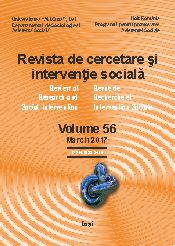PSYCHOLOGICAL CONTRACT AND TURNOVER INTENTION OF DISPATCHED EMPLOYEES: MEDIATING EFFECTS OF JOB SATISFACTION AND ORGANIZATIONAL COMMITMENT
PSYCHOLOGICAL CONTRACT AND TURNOVER INTENTION OF DISPATCHED EMPLOYEES: MEDIATING EFFECTS OF JOB SATISFACTION AND ORGANIZATIONAL COMMITMENT
Author(s): Zhuang Xiong, Jinmu Ye, Pengju WangSubject(s): Socio-Economic Research
Published by: Expert Projects Publishing
Keywords: dispatched employee; psychological contract; turnover intention; job satisfaction; organizational commitment;
Summary/Abstract: Existing research generally suggests that the psychological contract is an effective way to solve the problem of employee turnover when a labor contract is missing or incomplete. However, with dual organizational identity, the effect of a dispatched employee’s psychological contract on turnover intention differs from the effect for an ordinary employee. Consensus has not been reached regarding how to intervene in the high turnover rates of dispatched employees in terms of psychological contracts. This study investigated the relationship between psychological contracts and the turnover intention of dispatched employees, with consideration of the mediating role of job satisfaction and organizational commitment. Using a questionnaire survey, data were obtained from 271 dispatched employees in the banking industry in Henan province (China) from February to June 2016. It was found that a dispatched employee’s psychological contract has a dual aspect involving strong relations between the employee’s psychological contract with the dispatching agency and with the client. Meanwhile, a dispatched employee’s psychological contract with the client has a significant positive influence on job satisfaction and organizational commitment, and indirectly influences turnover intention through the mediating roles of job satisfaction and organizational commitment. Further, the individual mediating effect of job satisfaction is greater than the continuous mediating effect of organizational commitment and job satisfaction. By revealing the influence of a dispatched employee’s psychological contract on turnover intention, this study can help organizations develop intervention strategies at the level of individual psychology to address the high turnover rates of dispatched employees.
Journal: Revista de Cercetare şi Intervenţie Socială
- Issue Year: 2016
- Issue No: 56
- Page Range: 19-43
- Page Count: 26
- Language: English

